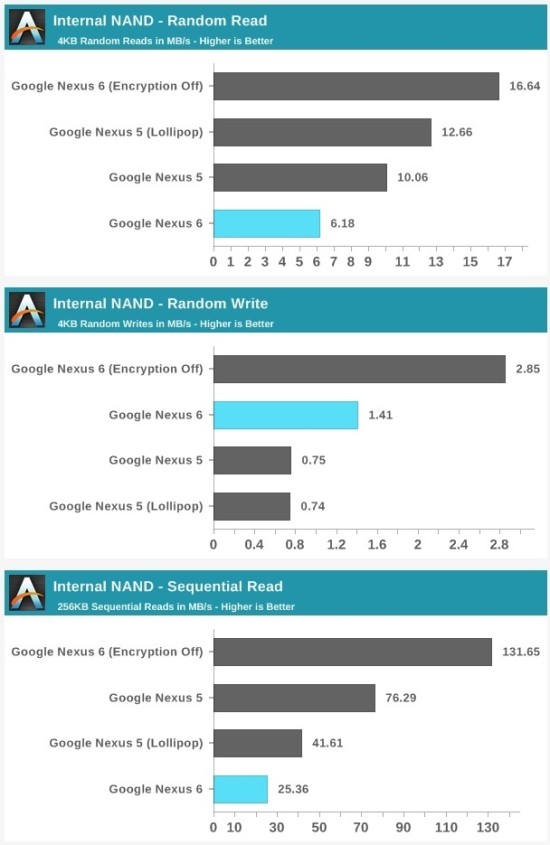Reports are coming in that the much requested and much hyped Androd 5.0 Lollipop encryption feature, which protects the user’s data from snooping, apparently slows the read and write speed to and from a phone’s storage unit by a whopping 80%, at least that’s the figure on the Google Nexus 6.
According to the in-depth test of the device by AnandTech, the disk speed is greatly effected by turning the feature on – in random read, random write and sequential reading from the storage space – on all applications.
SEE ALSO: SwiftKey’s Android Keyboard Update Brings Big Performance Improvements
The encryption likely slows the speed down due to the multiple layers of unlocking the files on the drive – the phones themselves hold a secret code to access files through a thick wall of three layers of encryption. This decrypting also requires more processing power to carry out as well, meaning the process is slowed down pretty much all the time.
From what we can tell, the figures suggest that random read performance (retrieving data from the storage unit) slowed by 62.9 percent due to the encryption being turned on. Likewise, random write speed (how fast information is written to the storage device) also took a hit of around 50.5 percent.
Worst affected were sequential read speeds, a drop in speed of a massive 80.7 percent. Sequential reading is by far the most important, it’s the process of reading a big file as opposed to small tidbits of sata. Displaying a video or picture will usually trigger a sequential read, and this is the most frustrating part, you could be waiting for 1.8 times as long as you normally would for these big files to load.
There’s quite a lot of hype around these figures, because you see the FDE (Full Disk Encryption) feature has been around since android 3.0 – the device being tested is using FDE, but running Android 4.4 KitKat, so it’s not technically the same as Android L.
SEE ALSO: MiniDayZ is a free, top-down DayZ
This may seem a confusing way to check disk speeds, but FDE is to be enabled by default on Lollipop – meaning that the feature will hamper disk speeds out of the box, and may lead uninformed users to believe the OS is slow – a blow for Google, especially if the word gets out that ‘Android L is slow’.
Word of mouth condemnation could spell disaster for the wholly optional Android L – Google may fix or change FDE on the new OS but for now we can safely predict that the feature will drop speeds.
Source: AnandTech
Via: Techspot


